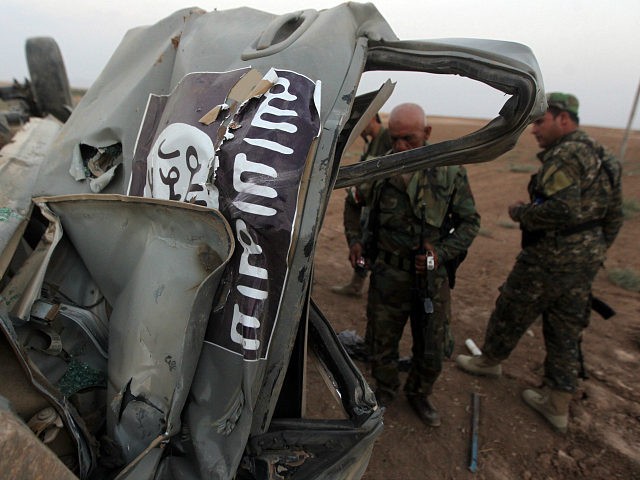The final stages of the battle to liberate the Iraqi city of Mosul from the Islamic State (ISIS) will be “extremely violent,” according to a U.S. military commander advising Iraqi forces in the region.
In a phone interview with The Washington Post, Col. Patrick Work said that the neighborhoods still held by ISIS in Mosul could be the most difficult to recapture, warning that “the hardest days are still in front of them.”
The city of Mosul, located in Northern Iraq, is considered a key battleground in the U.S coalition’s fight against ISIS, having previously been a logistical and territorial stronghold for the organization.
However, successful offensives against the organization have weakened ISIS’s grip on the city, with the U.N envoy for Iraq this week suggesting that the city’s total liberation from Islamic State is “imminent.”
Nonetheless, Work refused to give a date for any possible liberation for the city, despite some Iraqi officers believing that it could be over by the end of this week, in keeping with the beginning of Ramadan this Sunday.
The operations for Iraqi forces have proved costly, with an estimated 980 soldiers killed and over 6000 severely wounded.
One of the key problems for Iraqi forces is the potential for crossfire, with around 150,000 civilians believed to be trapped in western Mosul across the five square miles still held by ISIS.
Iraqi intelligence sources estimate there are just 350 remaining ISIS fighters in the area, although Work suggested the “figure may not really matter,” instead focusing on the importance of controlled territory. Furthermore, despite their proportionate lack of soldiers, the group has continued to launch multiple offensives across the city.
The area also poses strategic difficulties for Iraqi forces, with narrow side streets that could restrict vehicle movement and make it easier for ISIS to plant suicide bombs.
Meanwhile, concerns in Iraq are growing that when Mosul falls, Iranian-backed Shiite militias will attempt to capture the city. The Baghdad government is Shiite-led and has made legal exceptions to allow the Shiite-led Popular Mobilization Forces (PMF) cooperate with the official Iraqi military in Mosul.
The PMF has ties to Iran and its terror proxy, Hezbollah, and has threatened to kill U.S. troops who attempt to help in the fight against ISIS. Iranian terror proxies have also infiltrated the fight against the Islamic State in Syria and aid Shiite Houthi rebels waging war in Yemen.
In their attempts to retain control of the city, ISIS has gone as far as launching a chemical attack targeting both women and children, with reports this week revealing the organization has conducted chemical weapons experiments on live human beings.
A report conducted by the United Nations recently found that over 300,000 civilians in Mosul have been displaced by the conflict, despite 94,500 being able to return to their homes in liberated parts of the city.
Testifying in front of the Senate Armed Services Committee, Defense Intelligence Agency (DIA) Director Lt. Gen. Vincent Stewart warned that even though the group is experiencing losses, they continue to be the “most significant” threat to America.
“ISIS has lost more than 60 percent of its territory in Iraq and about 45 percent of its territory in Syria since the group’s height in August 2014. The self-proclaimed Islamic State of Iraq and ash-Sham (ISIS) has been substantially degraded on numerous battlefields, yet the group remains the most significant terrorist threat to the United States and our allies,” he said.
You can follow Ben Kew on Facebook, on Twitter at @ben_kew, or email him at bkew@breitbart.com.

COMMENTS
Please let us know if you're having issues with commenting.